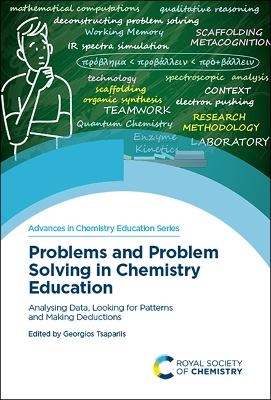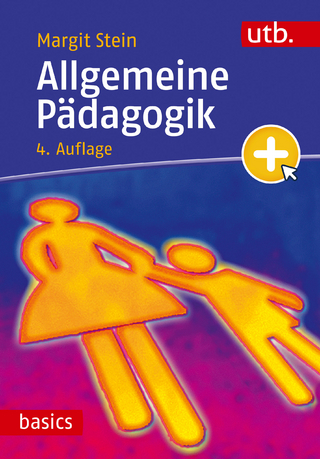
Problems and Problem Solving in Chemistry Education
Royal Society of Chemistry (Verlag)
9781839162183 (ISBN)
The following situations are considered, some general, others with a focus on specific areas of chemistry: quantitative problems, qualitative reasoning, metacognition and resource activation, deconstructing the problem-solving process, an overview of the working memory hypothesis, reasoning with the electron-pushing formalism, scaffolding organic synthesis skills, spectroscopy for structural characterization in organic chemistry, enzyme kinetics, problem solving in the academic chemistry laboratory, chemistry problem-solving in context, team-based/active learning, technology for molecular representations, IR spectra simulation, and computational quantum chemistry tools. The book concludes with methodological and epistemological issues in problem solving research and other perspectives in problem solving in chemistry.
With a foreword by George Bodner.
Introduction − The Many Types and Kinds of Chemistry Problems;
Qualitative Reasoning in Problem-solving in Chemistry;
Scaffolding Metacognition and Resource Activation During Problem Solving: A Continuum Perspective;
Deconstructing the Problem-solving Process: Beneath Assigned Points and Beyond Traditional Assessment;
It Depends on the Problem and on the Solver: An Overview of the Working Memory Overload Hypothesis, Its Applicability and Its Limitations;
Mechanistic Reasoning Using the Electron-pushing Formalism;
Scaffolding Synthesis Skills in Organic Chemistry;
Problem Solving Using NMR and IR Spectroscopy for Structural Characterization in Organic Chemistry;
Assessing System Ontology in Biochemistry: Analysis of Students’ Problem Solving in Enzyme Kinetics;
Problem Solving in the Chemistry Teaching Laboratory: Is This Something That Happens?;
Problems and Problem Solving in the Light of Context-based Chemistry;
Using Team Based Learning to Promote Problem Solving Through Active Learning;
Technology, Molecular Representations, and Student Understanding in Chemistry;
An Educational Software for Supporting Students’ Learning of IR Spectral Interpretation;
Exploring Chemistry Problems with Computational Quantum Chemistry Tools in the Undergraduate Chemistry Curriculum;
Methodological and Epistemological Issues in Science Education Problem-solving Research: Linear and Nonlinear Paradigms;
Issues, Problems and Solutions: Summing It All Up;
Postscript – Two Issues for Provocative Thought: (a) The Potential Synergy Between HOTS and LOTS (b) When Problem Solving Might Descend to Chaos Dynamics
| Erscheinungsdatum | 20.05.2021 |
|---|---|
| Reihe/Serie | Advances in Chemistry Education Series ; Volume 7 |
| Verlagsort | Cambridge |
| Sprache | englisch |
| Maße | 156 x 234 mm |
| Gewicht | 865 g |
| Themenwelt | Sozialwissenschaften ► Pädagogik ► Allgemeines / Lexika |
| Sozialwissenschaften ► Pädagogik ► Bildungstheorie | |
| ISBN-13 | 9781839162183 / 9781839162183 |
| Zustand | Neuware |
| Informationen gemäß Produktsicherheitsverordnung (GPSR) | |
| Haben Sie eine Frage zum Produkt? |
aus dem Bereich


